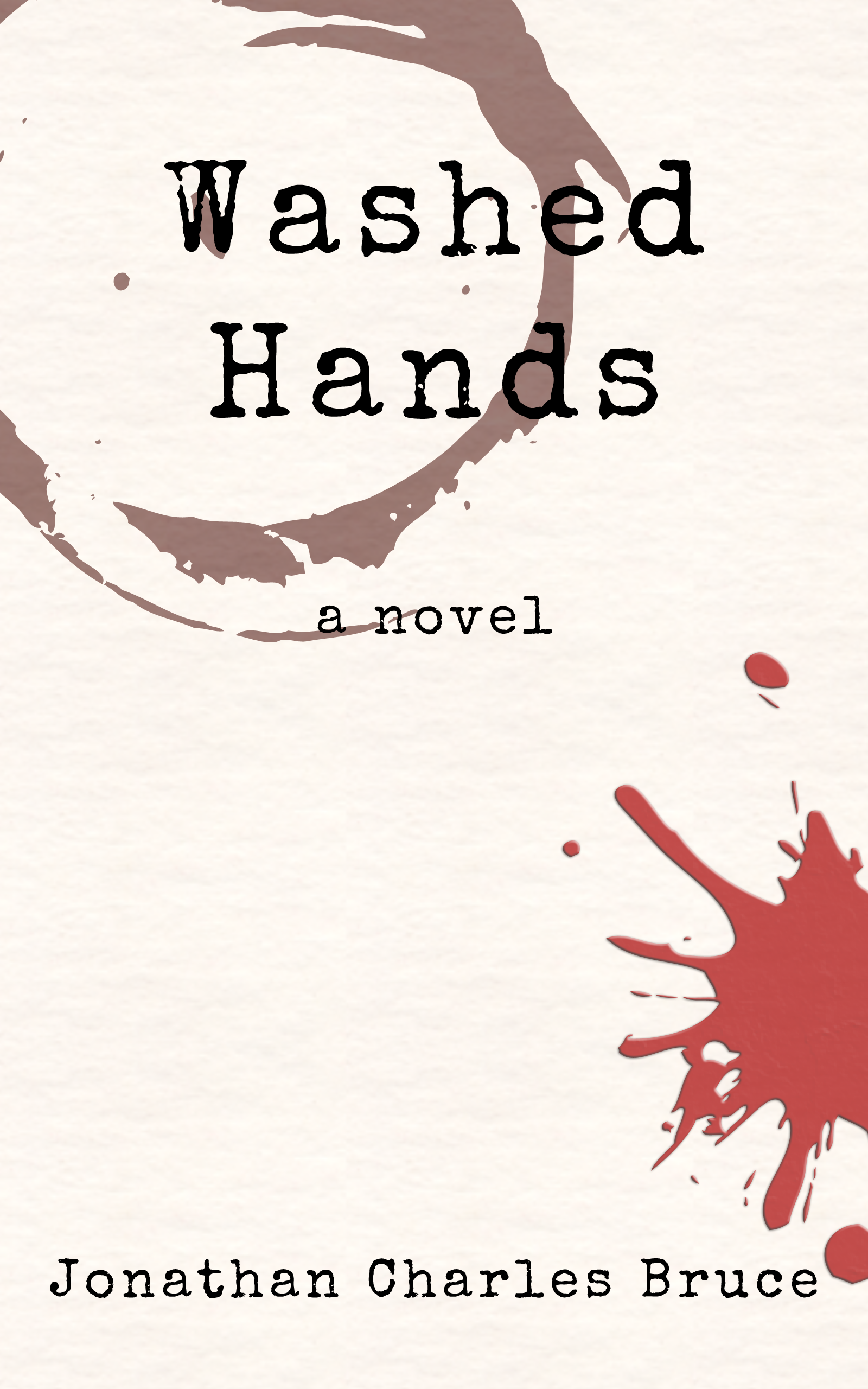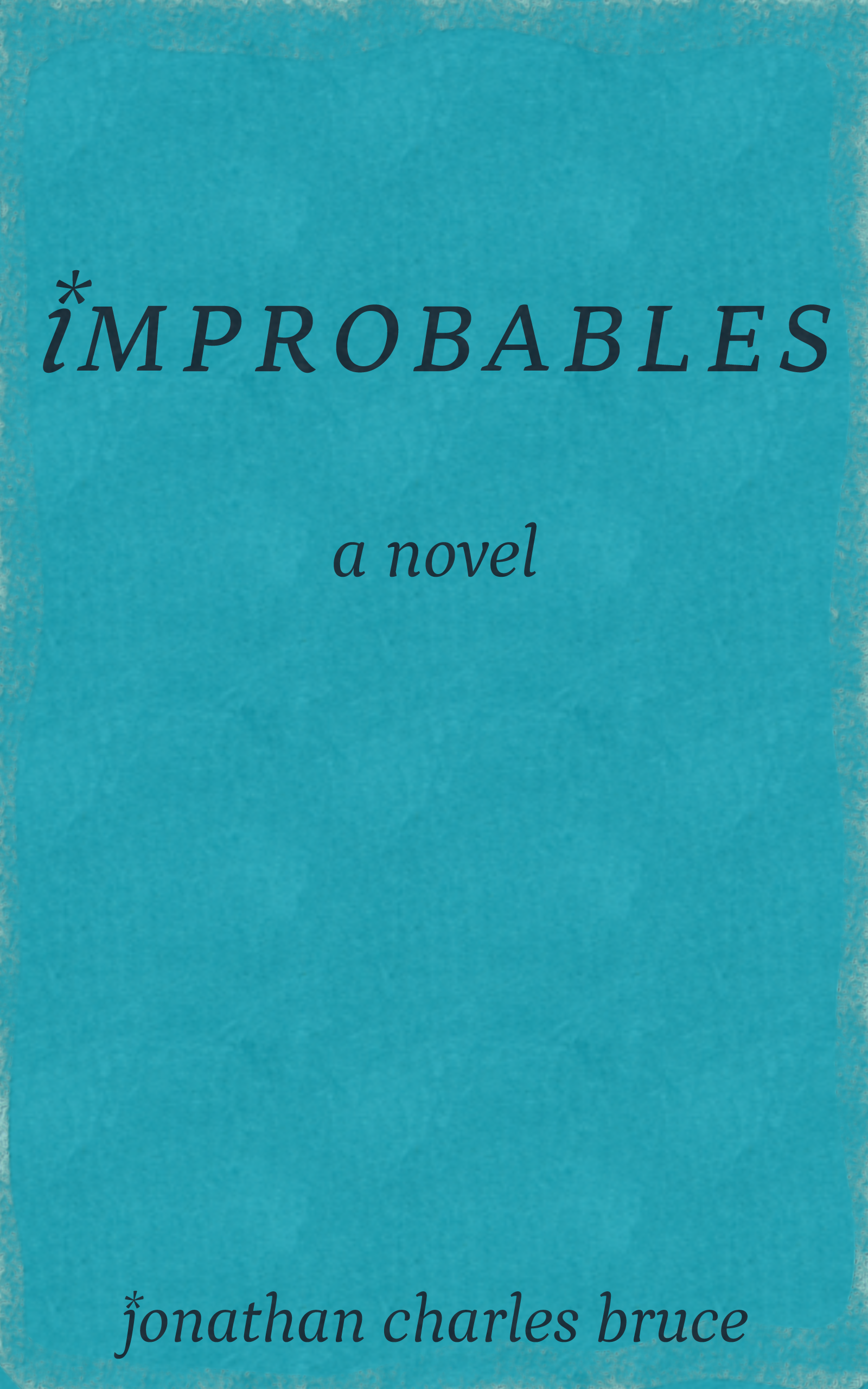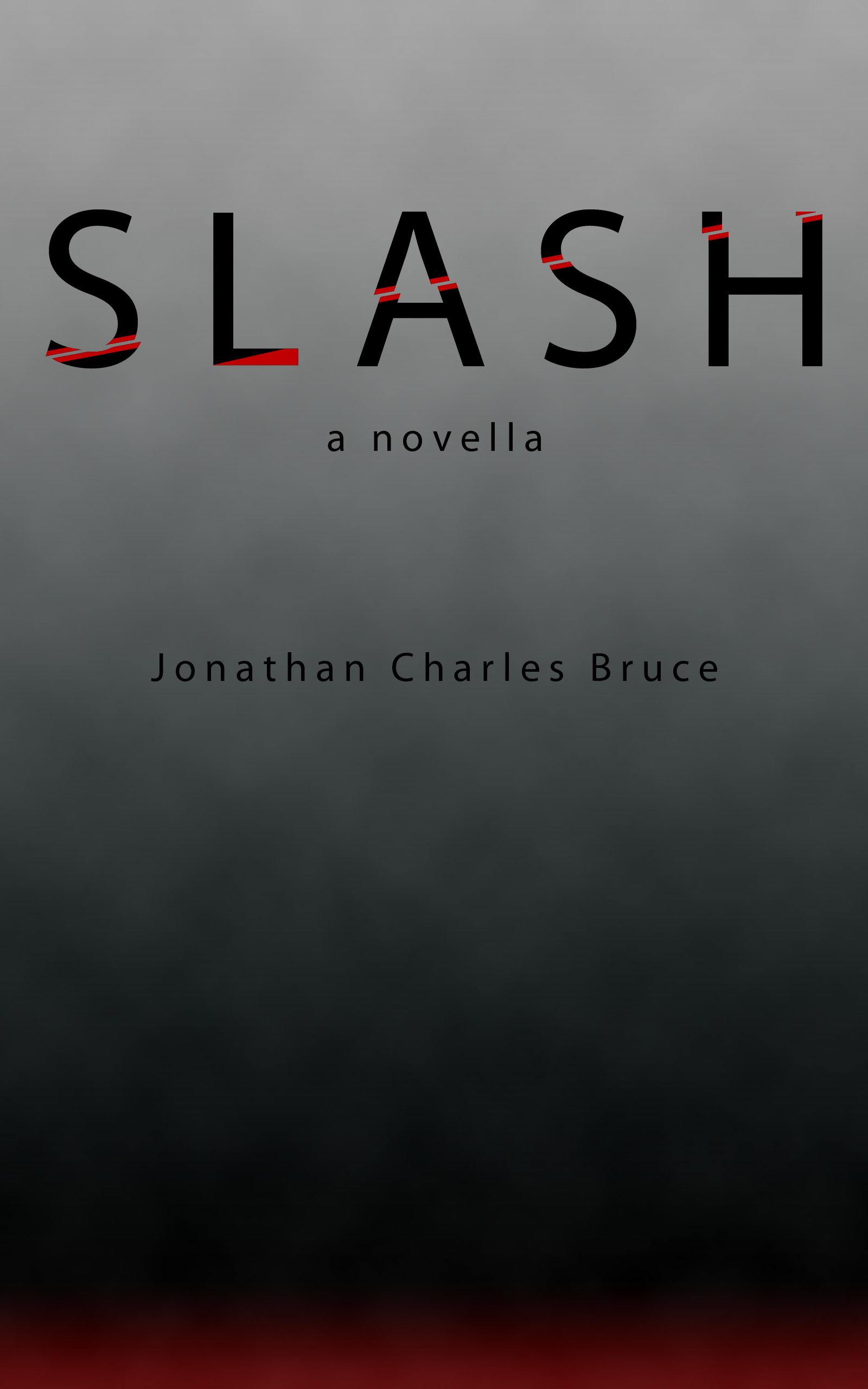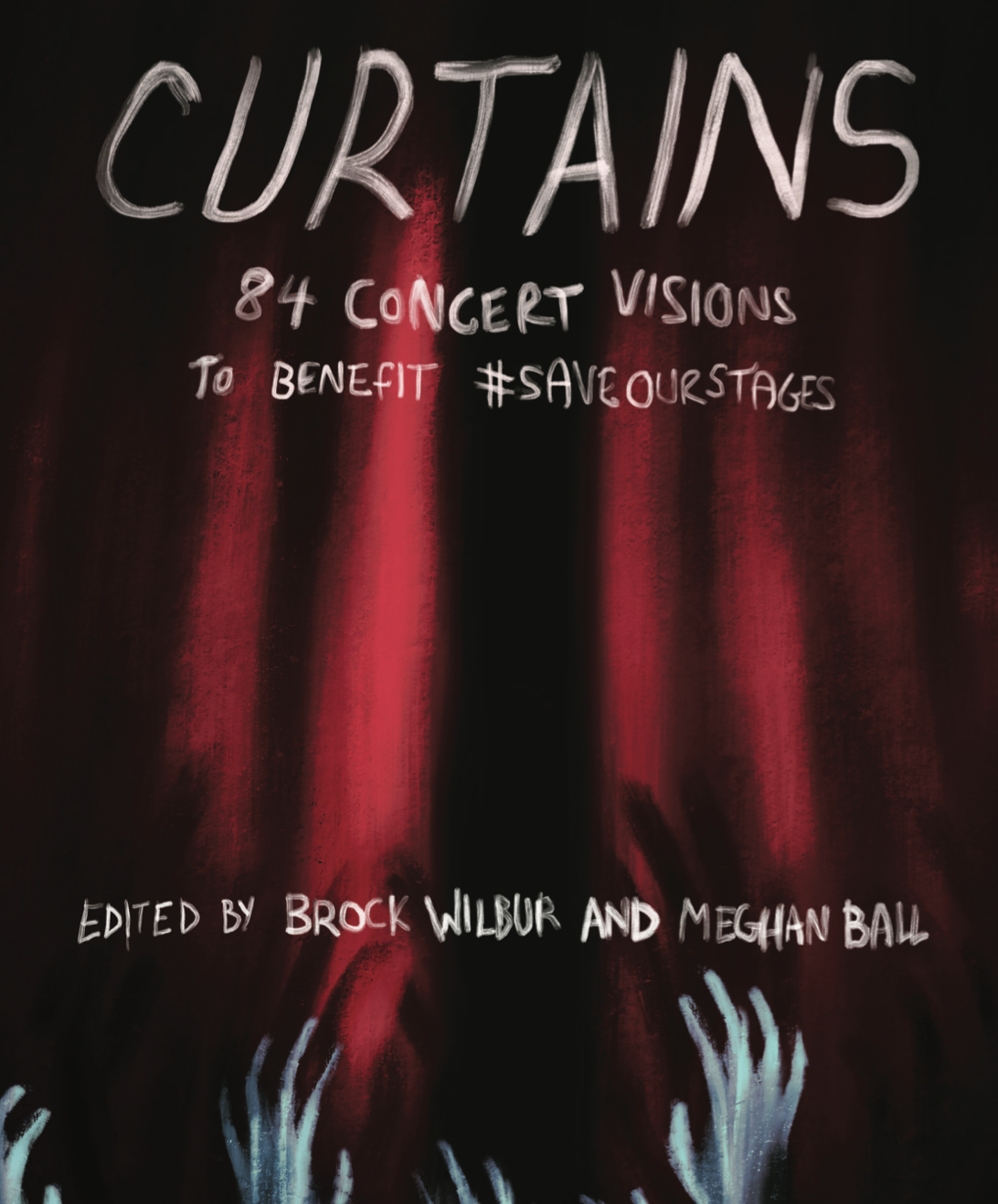Authors, Ideology, and Writing
Let’s start this off with an early reviewer of Improbables:
I don't know why I blacked out the name. This person used a pen name. Politeness? We'll go with that. From Amazon.
The thing I find so interesting about this particular review is the tagline—the idea of social justice and paranormal romance, the apparent peanut butter and jelly of the literary world, finally coming together. It’s an interesting nod to make in the tagline of the review.
I’m not saying it’s wrong, mind you. I teach in an Ethnic Studies department with a particular focus on gender, race, and ethnic identity. I have a course devoted to these issues in media and popular culture. Social justice is kind of my thing—I would hope so. I mean, even if I didn’t teach in an area that specifically grapples with these issues, would you want a person responsible for grading you believing some people are just naturally better than others?
I submit that no, you would not.
The point that I’m getting to here is that it is incredibly difficult, if not outright impossible, for an author to avoid incorporating their worldview—in parts or as a whole—into their work. I’m not saying that it’s always intentional, but the idea that one can simply excise the author’s lived experience and opinions from their work is somewhat preposterous. Of course, this also begins blundering into the territory of intent versus consumption, wherein if an intended result is interpreted in a way divergent from the creator’s intent, which is more important?
Rather than blunder squarely into that minefield, let’s turn these horses back around (I’m so good at metaphors). Yes, my worldview influences my writing. Yes, this means that Improbables and Washed Hands and even Project Northwoods have my oh-so-icky ideas running around them despite being fiction. Perhaps unintentionally, Northwoods was a critique on the history-making process and an obsession with classification while administering punches to super-powered faces.
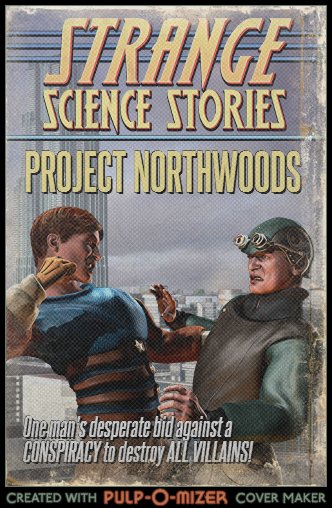
Bet you didn't see that reading of my work coming, didya?
Washed Hands, while a noir thriller, worked within a framework of a free-market response to domestic violence. And Improbables deals explicitly with race and gender inside a story about the paranormal.
So, yes, there is an ideology behind the things I write. But I defy you to find a single author that manages to write a 70,000-100,000 word novel devoid of their particular beliefs. Hell, any media is going to operate within certain ideological understandings of the world. Is this bad? Only if you’re such a gullible schmuck that reading someone’s thoughts instantaneously converts you to their line of thinking.
Now, if you’re contrarian by nature, you are probably listing as many pieces of media—print or otherwise—that take no particular stance. But before you attempt to inundate me with counter examples, allow me to suggest to you that the reason why you think there’s no ideological bias in those works is because they correspond almost wholly with yours. That is to say, the only reason they look like they are not taking a position is because you already occupy that position.
The way that many people are programmed to respond to media is to only critique it when it directly confronts something we hold to be a “neutral” position. To look at the whole “Female Ghostbusters” thing, no one questioned why there were no women on the team in the original movie. The ideological bias of men being the de facto protagonists goes unchallenged. Swap genders and, for some reason, now it’s a political statement. Now it’s bias.
Keep in mind that, as far as I’m aware, there was no such hyperbolic silliness involved when the cartoon Extreme Ghostbusters brought in a multi-racial cast of college students to bust ghosts. And one of them was a girl, presumably with a chronic case of cooties. Was that not a political statement? Was that not a betrayal of some whinging dipshit’s childhood?
If we are to bring this back to the topic of paranormal romance and its relationship an author’s ideology, I think it doesn’t take much work to show that the genre has pretty consistently been an ideological playground. If we look at gothic horror such as Dracula, we do see that there are themes focusing around the strict policing of feminine sexuality and the beastly nature of a distinctly foreign menace. In an era of global British influence and a continuing investment in maintaining the colonial empire, there is something decidedly political about a fictional tale starring a literal foreign monster invading England through the importation of dirt into the country.
The fact that the creature not only buys land but attempts to gain subjects through English women is telling of Stoker’s particular ideological bend. What does it say when woman after woman falls easily to Dracula’s charms, but the most consistent male escort of the vampire is Renfield, who is a patient in an asylum? Is there not an implicit connection to the mental state of women and ‘madmen’ that the author is making?
Through this, we see a clear panic at the idea of the British Empire being colonized by a monstrous Other, despite the fact that English colonization has decimated native populations and governments with economic, social, and physical violence. The alien dirt and physicality of the vampire is treated like a bodily infection, potentially rotting the strength of the isle from the inside out. It attacks a key resource for producing more British people (fertile women), taking them away through a monstrous unlife that removes any semblance of humanity (and the capacity to be saved). The only way to stop it is to travel to its source and destroy it. Intentional or not, acknowledging this bias or no, Stoker’s worldview influenced the way he wrote the book.
Also, Carmilla.
If we were to flash forward to the ur-text of paranormal romance, the Twilight series, we see another fairly strong example of ideology pervading a text. There’s lots to work with—from the way Bella is routinely stripped of her agency to the stereotypical machismo of its male cast to its adulation of the ‘Lost Cause’ Civil War narrative—but let’s look at one of the major narrative arcs of the last book: Bella’s pregnancy with a demon baby.
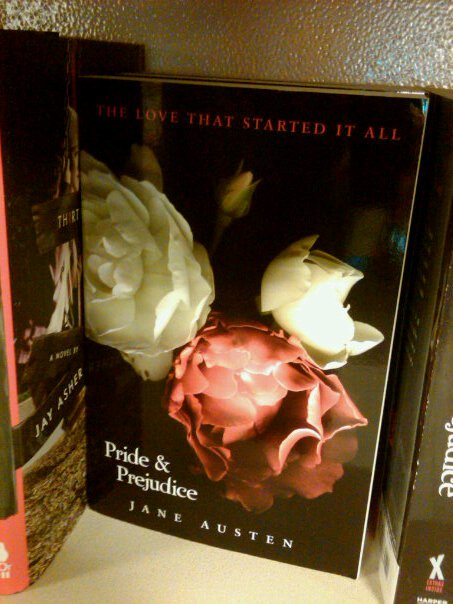
A plotline shamelessly stolen from Pride and Prejudice. I mean, why else would the covers look alike?
Okay, I’m being flippant (my ideology just pokin’ right on through). It’s a half-vampire baby that serves to (poorly) justify Jacob Black’s interest in Bella. But there are two major points I’d like to bring up that show a particular bias on the question of pregnancy, childbirth, and abortion.
The first is that childbirth is a way of attaining “true womanhood”. Before the baby is born, Bella is awkward and fumbling—you know, a teenager. After literally dying in childbirth and her resurrection as a vampire after the fact, she becomes something better than she thought possible; even as a vampire, she’s spectacular in that she is in control of her bloodlust in a way that’s impossible for most newborns. The transition from Bella-the-awkward-teen to Bella-the-best-vampire is, narratively speaking, only possible because of her transition to motherhood. A transition which literally kills her past self in favor of a new one.
Get it?
If that’s a bit too much of a reach for you (because subtext is hard), then we have actual text to sate your quest for evidence. How about that deeply uncomfortable anti-abortion conversation betwixt the clutch of vampires and Bella? The awkward battle of words as to whether to call the thing killing Bella from the inside-out “fetus” or “baby”? How in the world is that drawn out plot line not an example of an obvious ideological bias? I’ve heard people mutter about it, but it doesn’t seem to draw the wrath of parents like one would anticipate if the roles were reversed and the vampires were forcing Bella to have the baby that, once again, is killing her from the inside out.
The U.S. has a very uncomfortable relationship with discussing abortion, a legal medical procedure that nevertheless provokes violent outrage and angry protests. As such, this entire scenario in Breaking Dawn is not necessarily viewed as the author’s bias, but as a part of a complicated emotional response to the topic. If the script was flipped and Bella was seeking to terminate the pregnancy against the wishes of a group of physically overpowering vampires, howls of the author attempting to poison our youth would have echoed across the land.
If we were to take this in the other direction, True Blood very proudly wears its bias on its sleeve during the opening credits. In a brief shot outside of a church, a sign announces that ‘God hates fangs’. Much of the show nakedly attempts to use conversations surrounding LGBT advocacy and liberation in their quest to make it something more substantive than pretty southern people bumping uglies. I mean, one of the major antagonists is a fundamentalist preacher who positions himself and his followers as violent defenders of the faith on a frankly weird interpretation of the Bible.
But the social justice position of True Blood’s ideology is haphazard and poorly thought out at best. In the series, just about all supernatural creatures are violent, beastly things that pretty much only exist to kill, eat, and sex anything and everything in their path. To suggest that the ‘Vampire Rights’ campaign of the show is analogous to the LGBT struggle is to suggest that underneath it all, the people they’re oppressing are exactly what people fear. That is to say, that said oppression is justified.
It falls into the same pitfall that X-Men’s co-option of the Civil Rights Movement did—in order to create drama, you have to create a credible threat, and you end up creating stupid shit like ‘The Brotherhood of Evil Mutants’. At least True Blood’s supernatural menagerie were all pretty convinced of their own decency; the idea that a group of mutants called themselves evil is a bit, ya know, fucked up if mutants are supposed to stand in for African Americans.
I’m not condemning anyone, their works, or their fans with this. All I’m saying is that, yes, my worldview—just like every author’s worldview—influences my writing. I consider myself a feminist. I consider myself dedicated to issues of social justice. I believe in the power of fiction to help people. I believe in using my privilege to open up areas previously closed to others. As such, the worlds I create and those I populate them with are going to face issues and have conversations that I feel are important. It’s my job as an author not just to entertain, but to offer alternatives.
So, um… buy my books, I guess.
< PREVIOUS ENTRY • NEXT ENTRY >
Advice • Fiction • Gaming • General Musings • Reviews



